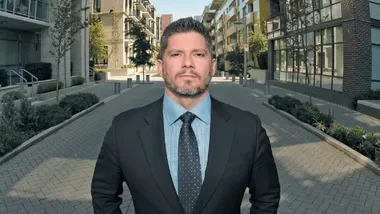Long before I arrived here, I've been a fan and student of Vancouver city-building.
Long before I arrived here, I've been a fan and student of Vancouver city-building.
It would take many posts to fully explain the generations of decisions, attitudes, approaches and tools that have led to the global attention now given to our planning and design successes. Vancouver isn't perfect, but I do believe that this city's story has much to teach. Given that, we do our best to accommodate a portion of the many international requests for tours, delegations, speakers, articles etc. routinely received to discuss Vancouver's planning approach.
There are, for those of you with an interest, some great books out there on the subject, from John Punter's The Vancouver Achievement, to Lance Berelowitz's Dream City: Vancouver and the Global Imagination, to the new, easy to read City Making in Paradise: Nine Decisions that Saved Vancouver by former Mayor and Provincial Premier Mike Harcourt and former Chief Regional Planner Ken Cameron.
But because we're not perfect, we also have much to learn from other world cities that are doing some things much better, or at least differently, than we are. We should continue to be both teachers and learners, and must view our successes and challenges with constructive candour.
Luckily we are also a "destination" of sorts for great urban thinkers that we can learn from, and have many wonderful facilitators of public urban dialogue here in the city (the best, arguably, being Simon Fraser University's downtown City Program, run by fellow planetizen blogger Gordon Price).
We passionately jump on every opportunity to learn from the best urban thinkers who come to town, and the conversations tend to be public, not just "professional". Just in the past few weeks, we've had idea-shaking visits from Jan Gehl from Copenhagen, Douglas Farr from Chicago, the ubiquitous Andres Duany from Miami, Jim Kunstler from New York State, etc. etc., all with exceptional turnouts from the public, associated newspaper or radio stories, etc. This level of strong public understanding and discourse on city-building issues is absolutely critical as we move forward, as an engaged city, to find what is starting to be called locally a "next level of urban achievement."
Can Vancouver do this? Can we reach another level of urban achievement? With growing challenges around sustainability and climate change, general affordability, homelessness, urban competitiveness, etc, we will have to. It will involve learning from the best global thinking, while continuing to foster a robust local dialogue and education around city-building.

Planetizen Federal Action Tracker
A weekly monitor of how Trump’s orders and actions are impacting planners and planning in America.

Chicago’s Ghost Rails
Just beneath the surface of the modern city lie the remnants of its expansive early 20th-century streetcar system.

Amtrak Cutting Jobs, Funding to High-Speed Rail
The agency plans to cut 10 percent of its workforce and has confirmed it will not fund new high-speed rail projects.

Ohio Forces Data Centers to Prepay for Power
Utilities are calling on states to hold data center operators responsible for new energy demands to prevent leaving consumers on the hook for their bills.

MARTA CEO Steps Down Amid Citizenship Concerns
MARTA’s board announced Thursday that its chief, who is from Canada, is resigning due to questions about his immigration status.

Silicon Valley ‘Bike Superhighway’ Awarded $14M State Grant
A Caltrans grant brings the 10-mile Central Bikeway project connecting Santa Clara and East San Jose closer to fruition.
Urban Design for Planners 1: Software Tools
This six-course series explores essential urban design concepts using open source software and equips planners with the tools they need to participate fully in the urban design process.
Planning for Universal Design
Learn the tools for implementing Universal Design in planning regulations.
Caltrans
City of Fort Worth
Mpact (founded as Rail~Volution)
City of Camden Redevelopment Agency
City of Astoria
City of Portland
City of Laramie



























